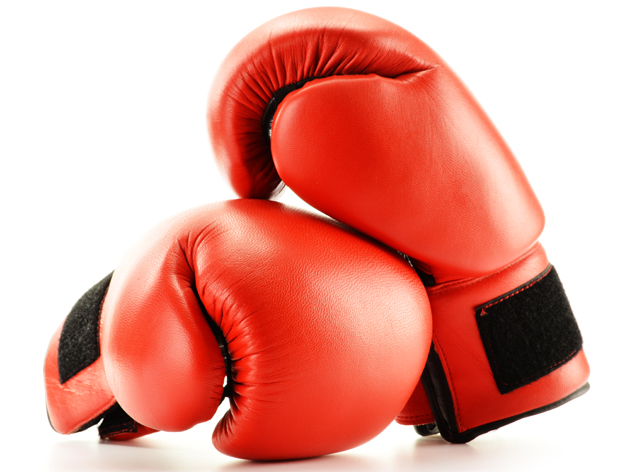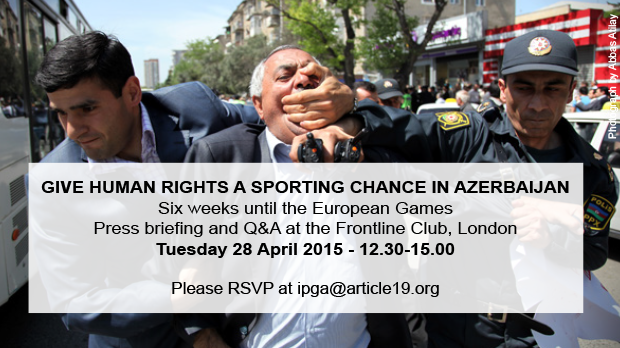10 Apr 2015 | Events, mobile

Shutterstock
Index at the Hay Festival
What are the limits of free speech and civility? What is the nature of “offence”? What earns “respect”? If words can hurt you, are sticks and stones and broken bones the answer?
Index on Censorship magazine will launch its spring issue at this year’s Hay Festival on Saturday 23 May, along with a debate discussing the limits of free speech and the nature of offence. Speakers include: Turkish novelist Elif Shafak, Index chair David Aaronovitch, editor of Index on Censorship magazine Rachael Jolley and academic Sarah Churchwell.
Where: Llwyfan Cymru – Wales Stage, Hay Festival
When: Saturday 23 May 2015, 8.30pm
Tickets: £8 / order here
Index is also holding a debate on 24 May at Hay Festival, find out more here
10 Apr 2015 | Events, mobile

Shutterstock
Punchy short arguments about flashpoints in freedom of speech debates – porn, blasphemy, Israel, national security. Where do we draw the lines? And why?
Speakers include: Comedian David Baddiel, author and historian Tom Holland, Index chair David Aaronovitch and editor of Index on Censorship magazine Rachael Jolley, along with other guests
Where: Oxfam Moot, at the Hay Festival
When: Sunday 24 May 2015, 8.30pm
Tickets: £7 / Order here
Index is also launching its spring magazine at Hay Festival on 23 May, more information here
10 Apr 2015 | Azerbaijan, Azerbaijan News, Europe and Central Asia, mobile, News and features

From top left: Arif Yunus, Rasul Jafarov, Leyla Yunus, Khadija Ismayilova, Intigam Aliyev and Anar Mammadli – some of the government critics jailed on trumped up charges in Azerbaijan
Social media users have hijacked the hashtag #HelloBaku to draw attention to human rights and free speech violations in Azerbaijan ahead of this summer’s inaugural European Games in the capital Baku.
Baku 2015 organisers launched the hashtag contest on 4 March 2015, as part of a promotional push ahead of the games, which start on 12 June. Social media users were invited to enter by posting a photo or video of themselves holding a sign with #HelloBaku written on it. The winner, set to be announced this week, will be awarded two tickets to the opening ceremony, as well as a night at a luxury hotel and flights.
But the campaign backfired, as a number of social media users instead used #HelloBaku to highlight Azerbaijan’s poor record on human rights. According to the latest estimates, there are over 100 political prisoners in the country. Since last summer, authorities have been engaged in an unprecedented onslaught against its most prominent critics, jailing investigative journalist Khadija Ismayilova, pro-democracy activist Rasul Jafarov, human rights lawyer Intigam Aliyev and others on trumped up charges. On 9 April, prosecutors asked for a 9-year sentence for Jafarov, who stands accused of tax evasion and malpractice, among other things.
On 30 March, the same day the contest closed, Human Rights Watch researcher Giorgi Gogia, who was set to attend the trial hearing of Aliyev and Jafarov, was blocked from entering Azerbaijan. Traveling from his native Georgia, Gogia does not require a visa to go to Azerbaijan. Despite this, his passport was taken away and he was held at the Heydar Aliyev International Airport in Baku for 31 hours without explanation, before being sent back to Tbilisi.
Azerbaijan’s authorities, led by President Ilham Aliyvev, have been accused by human rights groups of running an expensive international PR operation to whitewash rights violations, and present the country as a “modern, outward looking state“. According to the Baku European Games Operation Committee (BEGOC), the games will “showcase Azerbaijan as a vibrant and modern European nation of great achievement”.
London-based marketing firm 1000heads, whose clients include Yahoo, Procter & Gamble and Lego, worked with Baku 2015 organisers on #HelloBaku. Index contacted 1000heads to ask whether they were aware of criticisms against Azerbaijan’s human rights record before taking on the job, and their response to the hijacking of the hashtag.
“We were working with BEGOC, the Baku European Games Operation Committee, which is responsible for delivering the event for athletes from the 49 National Olympic Committees of Europe. We are no longer involved,” 1000heads CEO Mike Rowe said in an email.
This article was posted on 8 April 2015 at indexoncensorship.org
9 Apr 2015 | About Index, Azerbaijan Statements, Events, mobile, Press Releases

Download invitation
Should human rights activists call for boycotts of sports events hosted by repressive regimes? What responsibility do sports organisations have? How can journalists effectively cover the full scope of human rights, social and political issues surrounding the Baku European Games?
In June 2015, Azerbaijan’s capital Baku will host the first European Games under the umbrella of the European Olympic Committees. Controversy already surrounds this new sporting venture, following reports earlier this year that Azerbaijan will foot the bill for all 50 national Olympic teams to attend.
The country’s internal political situation gives further cause for concern. Over the last twelve months, a wave of arrests of key critics — including human rights activists, election monitors, lawyers and investigative journalists — has almost entirely silenced Azerbaijani civil society, leaving activists and journalists in exile to highlight the regime’s on-going attacks on freedom of expression. Several large NGOs have been closed and legislative amendments make it almost impossible for critical groups to get foreign funding. The government controls all broadcast media, and in December, it forcefully closed the Baku branch of Radio Free Europe/Radio Liberty, a US-funded media organisation.
Meanwhile, Azerbaijan continues an expensive PR campaign to promote its image abroad – with considerable success. International criticism has been largely muted; with the EU and the US looking at ways to foster closer and strategic ties with Azerbaijan.
During this interactive session, our panellists will explore the relationship between sport and human rights, examining the argument that Azerbaijan is using such high profile events to whitewash its image amidst criticism from domestic human rights activists as well as international bodies regarding its human rights records.
The panel, chaired by ARTICLE 19, will bring together Azerbaijani human rights activists, political commentators and international human rights experts. The panellists will include Emin Milli, a former political prisoner in Azerbaijan, now director of Meydan TV, Rebecca Vincent, coordinator of the Sport for Rights Campaign, Giorgi Gogia, Human Rights Watch’s senior researcher on Azerbaijan who was recently denied entry into the country, and others to be confirmed.
The event format will be as follows:
12.30 – 13.00: Arrival, lunch and informal discussion
13.00 – 14.00: Interactive session, featuring Azerbaijani journalists and activists as well as human rights experts.
14.00 – 15.00: Opportunity for one-on-one interviews/discussion with panel members
The Panellists:
Emin Milli is an activist, blogger and co-founder of Meydan TV, an alternative online Azerbaijani news service, operating from Berlin. In August 2009, Milli and Adnan Hajizada, (known as the “donkey bloggers”), were found guilty of hooliganism and imprisoned for more than a year after posting an online video satirising the Azerbaijani government.
@eminmilli
Rebecca Vincent is a human rights activist and former U.S. diplomat who has been working on Azerbaijan for nine years. In December 2012, her Azerbaijani residence permit was revoked in connection with her human rights work in the country, and she has been unable to return to Azerbaijan ever since. She is currently the coordinator of the Sport for Rights campaign.
@rebecca_vincent
Giorgi Gogia is a senior researcher at Human Rights Watch with over a decade of experience working on Azerbaijan. Giorgi was recently banned from travelling to Azerbaijan, preventing him from monitoring the trials of human rights defenders behind bars on politically-motivated charges. He was deported without any explanation after spending 31 hours in Baku’s Heydar Aliyev airport.
@Giorgi_Gogia
This event is hosted by Article 19, Human Rights Watch and Index on Censorship on behalf of the International Partnership Group for Azerbaijan (IPGA). The IPGA is a coalition of 22 international NGOs, coordinated by ARTICLE 19, working to promote and protect freedom of expression in Azerbaijan. The group arose from a broader International Partnership framework established by International Media Support (IMS) and Open Society Foundations (OSF) in 2010. Since then, the IPGA has engaged in joint advocacy around specific events, such as the Eurovision Song Contest and the Internet Governance Forum both of which were held in the Azerbaijani capital Baku in 2012; and has regularly raised issues relating to human rights in Azerbaijan at international and regional institutions, notably the Council of Europe – with Azerbaijan chairing the body’s Committee of Ministers in 2014. – Read more about the IPGA
Where: Frontline Club, 13 Norfolk Place, London W2 1QJ
When: Tue 28 April, 12:30pm
Tickets: RSVP at [email protected]



